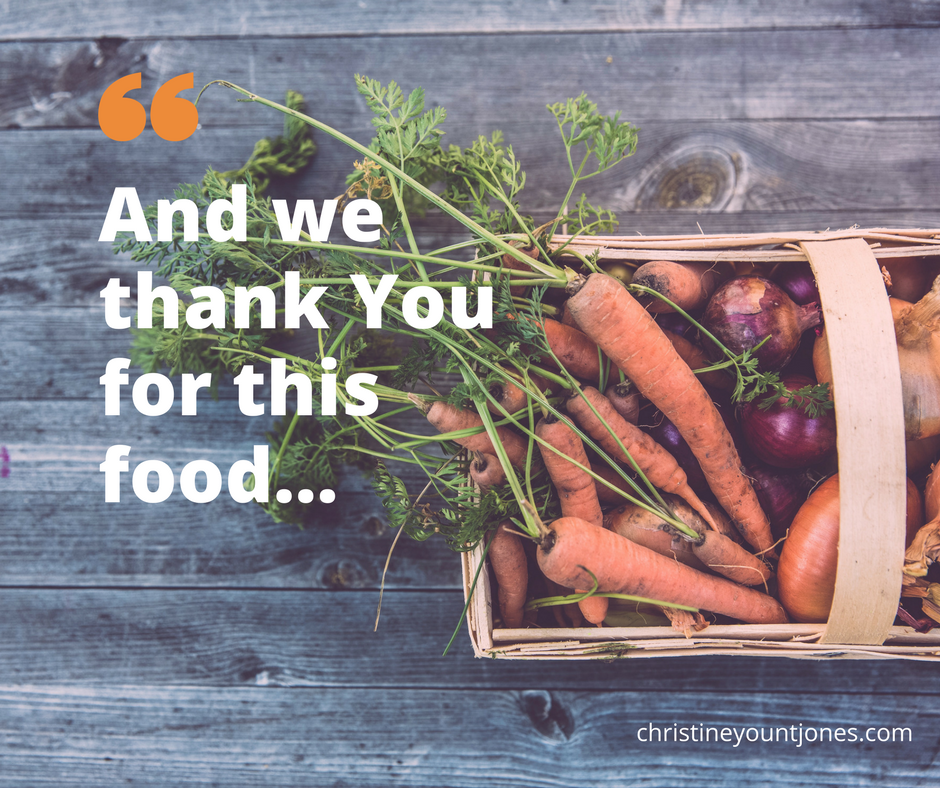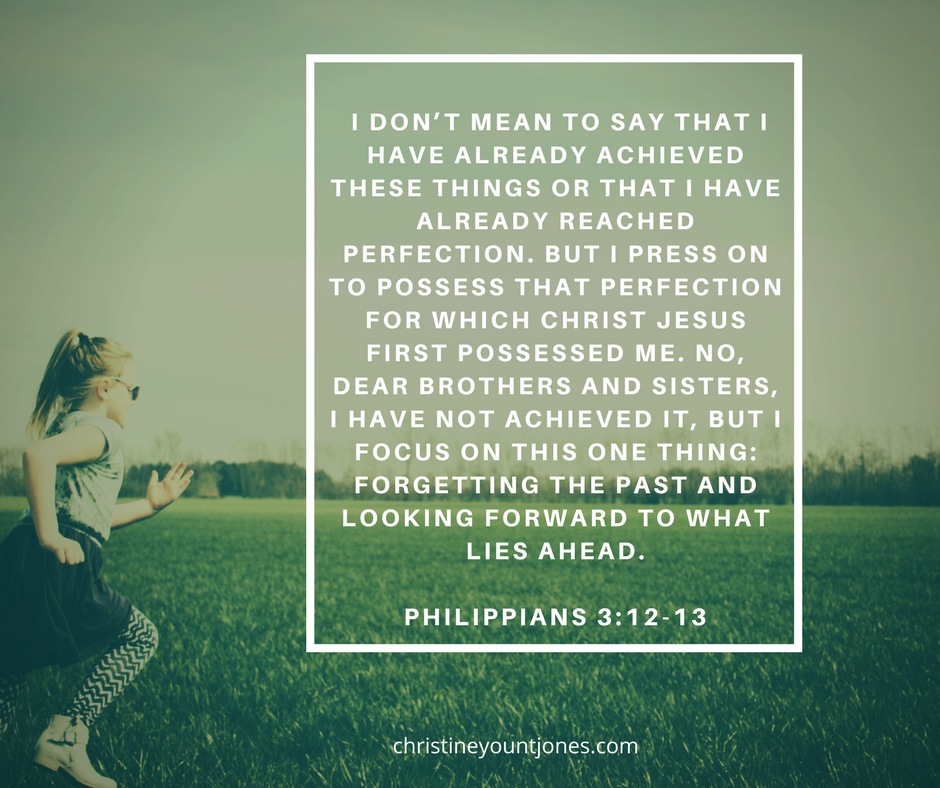
When my infant grandson is hungry, he must depend on others to feed him. He can’t drive to the store, buy his formula, make his bottle, and feed himself. He relies on those who love him to care for him. He’s completely dependent.
When we’re hungry, we go to the store, make a meal, and feed ourselves. Or do we?
I’m afraid that we’ve lost the connection to God who provides our every bite in our industrialized world. We rarely even see where our food is grown. And it can become easy to lose sight of the fact that we are completely and utterly dependent on God’s provision.
Farmers and gardeners understand that there is only so much they can do to grow food. Then they must rely on God’s providence and care to send the rain, shine the sun, and bear the fruit. Do we understand this? I almost wonder if the enemy blinds us to the wonder of God’s provision so that it’s trivialized and not treasured. And then every meal is just not that special.
Jacob understood this very clearly. When he blessed Joseph at the end of his life, he said…
“God, before whom my fathers Abraham and Isaac did walk,
the God which fed me all my life long unto this day.”
Genesis 48:15
“The God which fed me all my life unto this day!” Jacob understood that everything comes from God–every morsel, every grain, every sweet and savory bite.
Do we understand this? Do we stop to thank God for our food–before, during, or after? I confess I don’t always do this. In fact, I often forget. But I want to grow in acknowledging how dependent I am on God for food by praying.
It’s interesting to me that Jacob said “the God which fed me all life long unto this day” in his blessing to Joseph–the one God had chosen and led to plan and prepare for 7 years of famine in Egypt. Joseph surely understood that God is the one who feeds us! Jacob’s prayer was divinely led and teaches us the view we need to have regarding God’s provision: God feeds us all the days of our life.
So what does this mean for us in our food and diet struggles?
As we draw closer to God and learn more about who He is, we see His goodness and faithfulness in His provision. We understand that we are just a few seasons away from drought and famine. We understand that 20 million people in the world are on the brink of famine right now. We stop taking our food for granted and we trust God’s provision.
How do we respond to this? Here are some thoughts.
- We stop eating out of fear. So often I have eaten when not hungry because I might get hungry later. Perhaps I’m going to church or into a meeting and don’t want to get hungry when I can’t eat, so I eat to prevent hunger. This is the wrong reason to eat. Remember, we eat out of hunger–not appetite or any other reason such as fear. Instead, I can choose not to eat and trust that God will provide what I need when I need it. Practically, I can pack a snack in my purse or take it with me into a meeting–just in case. On a more spiritual side, I can trust that I won’t die from a hunger pang and just wait for the next opportunity to satisfy my hunger.
- I walk in the belief that God is faithful. I remember that God has provided food whenever I do get hungry. I celebrate God’s faithfulness in His provision of food.
- I eat with gratitude. I acknowledge that I would have nothing without God feeding me every day of my life. I give thanks to God for His goodness.
- I pray for others. I don’t just read about the plight of millions who struggle for their food, I pray for God’s provision and mercy.
- I share. And I don’t just pray. I seek out organizations that provide relief to these famine-stricken areas and I give money to assist.
- I get closer to God-made food. Instead of eating chemicals and factory-made food that does make it more difficult to see God’s provision, I choose a diet that mostly consists of things God has made–gorgeous veggies, juicy fruits, succulent meats. whole grains bursting with nutrition. (This is a guideline, not a rule.) It’s hard not to marvel at God’s provision when we eat natural instead of “plastic” food.
- I let God redeem my struggle. I become part of the solution related to food issues in the world. I become an advocate for hungry children in my community.
“Behold, as the eyes of servants look to the hand of their master,
As the eyes of a maid to the hand of her mistress,
So our eyes look to the Lord our God,
Until He is gracious to us.”
Psalm 123:2
Related
About The Author
Related Posts
11 Steps to Freedom From Diet Addiction
God has been building this message into my life for the last three years. And…


Nora Rawls | 24th May 17
Beautiful words
Wonderful words
Wonderful words of life.
Words from an Baptist Hymns.
Thank you for sharing.